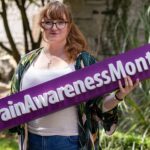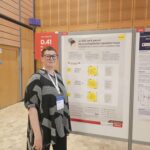New University of Limerick research to assess the importance of exercise in chronic pain management for older people
Release 1 Oct 2024 Image attached (REPRO FREE)
University of Limerick in partnership with Chronic Pain Ireland and Limerick Sports Partnership is beginning a major new research study into chronic pain in older adults and how exercise can help alleviate it.
Chronic pain affects one-third of all older Irish adults, and significantly negatively affects a person’s daily function and quality of life. The societal and healthcare costs of chronic pain have been estimated at €5.34 billion per year in Ireland.
Physical activity is widely recommended to help manage chronic pain and improve overall health for older adults. However, that it is not always easy for older people with chronic pain to be active. Barriers to being active include fear of how safe it is, lack of skilled support, and a lack of exercise opportunities designed with the needs of people with chronic pain in mind. Community-based programmes which encourage physical activity in a local, supported manner could bridge this gap.
If you suffer from chronic pain, then we need your help!
The research team is looking for you to take part in the study in community-based exercise classes or exercise in your home. Specialist physiotherapists have trained community exercise trainers in the skills to support people with chronic pain to engage successfully in exercise.
A small-scale trial will be conducted of older adults with chronic pain, to undertake either a community-based exercise programme, delivered by the newly educated trainers, or a control intervention where they will receive an education manual to support them to exercise at home, and later be invited to join the exercise classes. The classes will include water-based exercise, Pilates and Activator pole walking.
The study will ascertain if the exercise programme is feasible, and achievable, and will conduct interviews with the participants and trainers to receive their feedback on the study interventions.
It’s hoped the results of the study could lead to the roll out of similar classes countrywide.
A larger scale trial will then take place if the outcomes of the initial research are successful. The aim is to be able to roll out the instructor training and exercise classes across the Local Sports Partnerships network.
The research is being funded by the Health Research Board of Ireland.
Professor Karen McCreesh, from the School of Allied Health in University of Limerick is leading the project: “This study has been designed with the needs of people living with chronic pain at the forefront. We aim to help them to overcome some of the barriers to getting and staying active by providing a supportive exercise environment, where they can engage with others living with pain. I’d encourage anyone over 50 who is struggling to get active because of joint and muscle pain, to get in touch and join this new project”.
Martina Phelan, Chair of Chronic Pain Ireland said: “Pain causes people to avoid movement and retreat from activities leading to increased isolation. A gradual and gentle re-introduction to physical activity can help people with chronic pain take part more fully in their lives again despite their condition. Chronic Pain Ireland is delighted to support this important research by University of Limerick exploring the impact of community-based exercise on outcomes for older adults with chronic musculoskeletal pain”.
Ryan Meaney, Physical Activity for Health Officer with Limerick Sports Partnership (LSP) added: “Limerick Sports Partnership is delighted to be involved with this project. Chronic pain can have a significant impact on our quality of life. Physical Activity can be used to reduce pain, to strengthen muscles and joints and to improve our mental health. Physical Activity for Health is a key area for the LSP, we look forward to expanding our work in this space in the near future”.
To find out how you can take part in the project please contact 086 1688470 | comexpain@ul.ie.
ENDS
Note:
More information please contact Denis Tierney | UL Research Communications Officer | denis.f.tierney@ul.ie | 087 0907037















